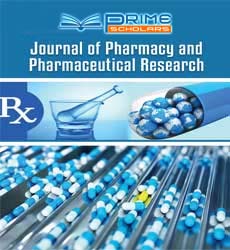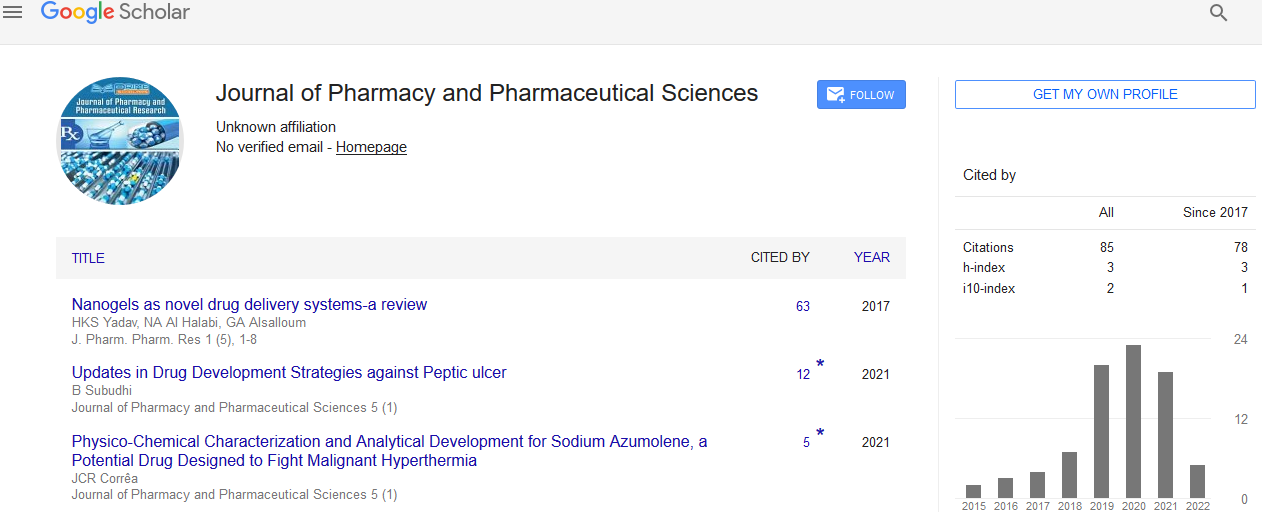Commentary - (2024) Volume 8, Issue 4
Nanoparticles in Drug Delivery: Enhancing Precision, Efficacy
Melissa Jason*
Department of Pharmacy, Aristotle University of Thessaloniki, Egypt
*Correspondence:
Melissa Jason,
Department of Pharmacy, Aristotle University of Thessaloniki,
Egypt,
Email:
Received: 02-Dec-2024, Manuscript No. IPIPR-25-22340 ;
Editor assigned: 04-Dec-2024, Pre QC No. IPIPR-25-22340 (PQ);
Reviewed: 18-Dec-2024, QC No. IPIPR-25-22340 ;
Revised: 23-Dec-2024, Manuscript No. IPIPR-25-22340 (R);
Published:
30-Dec-2024, DOI: 10.21767/ipipr.8.4.32
Description
Existing regulatory frameworks are not fully equipped to evaluate nanomedicines. Variability in nanoparticle properties complicates standardization. The environmental impact of nanomaterial disposal remains uncertain. Ensuring equitable access to nanomedicine poses ethical concerns. The future of nanomedicine lies in addressing current challenges and expanding its applications. The concept of nanotechnology was first proposed by physicist Richard Feynman in 1959. Today, nanomedicine is a rapidly growing field with a wide range of clinical applications. Integrating nanomedicine with genomics and proteomics will enable highly personalized treatments tailored to individual patients. Advances in materials science will lead to “smart” nanoparticles that respond to stimuli like pH, temperature, or enzymes. AI can optimize nanoparticle design, predict drug responses, and streamline clinical trials. The development of functional nanorobots for in vivo applications could revolutionize surgery, drug delivery, and tissue repair. Collaborations between academia, industry, and regulatory agencies will accelerate nanomedicine research and development. Nanomedicine has the potential to transform healthcare by offering innovative solutions to complex medical challenges. Its applications in drug delivery, diagnostics, cancer therapy, and regenerative medicine have already demonstrated remarkable promise. However, realizing the full potential of nanomedicine requires overcoming technical, regulatory, and ethical challenges. As technology advances, nanomedicine is poised to become a cornerstone of precision and personalized medicine, improving quality of life for patients worldwide. By fostering interdisciplinary collaboration and innovation, we can unlock the immense possibilities of this groundbreaking field, paving the way for a healthier future. This comprehensive overview highlights the transformative impact of nanomedicine, emphasizing its role in shaping the future of healthcare. Nanomedicine aligns with the principles of personalized medicine by enabling tailored treatments based on individual genetic and molecular profiles. Next generation nanocarriers incorporate stimuli responsive systems that release drugs in response to specific triggers, such as pH or temperature changes. AI-driven tools can optimize nanoparticle design, predict pharmacokinetics, and analyze clinical data for better therapeutic outcomes. Nanorobots, tiny machines operating at the nanoscale, have potential applications in targeted drug delivery, minimally invasive surgery, and disease monitoring. Emphasizes sustainable manufacturing processes and biodegradable nanomaterials to minimize environmental impact. Nanoparticles have been instrumental in the development of COVID-19 vaccines, such as the mRNA vaccines by Pfizer-BioNTech and Moderna. Lipid Nanoparticles (LNPs) encapsulate and deliver the fragile mRNA effectively. Theranostic nanoparticles combine therapeutic and diagnostic capabilities. For example, iron oxide nanoparticles are used for MRI imaging and hyperthermia-based cancer treatment. The rapid development of nanomedicine raises ethical questions regarding accessibility, privacy, and the potential misuse of nanotechnology. Public awareness and regulatory frameworks are essential to address these concerns responsibly. Nanomedicine represents a paradigm shift in healthcare, offering unprecedented opportunities to diagnose and treat diseases more effectively. While challenges such as safety, cost, and regulation remain, ongoing research and innovation promise to overcome these barriers. As nanotechnology continues to advance, its integration into mainstream medicine will pave the way for a new era of precision, efficiency, and sustainability in healthcare.
Acknowledgement
The author is grateful to the journal editor and the anonymous reviewers for their helpful comments and suggestions.
Conflict Of Interest
The author declared no potential conflicts of interest for the research, authorship, and or publication of this article.
Citation: Jason M (2024) Nanoparticles in Drug Delivery: Enhancing Precision, Efficacy. J Pharm Pharm Res. 8:32.
Copyright: © 2024 Jason M. This is an open-access article distributed under the terms of the Creative Commons Attribution License, which permits unrestricted use, distribution, and reproduction in any medium, provided the original author and source are credited.

